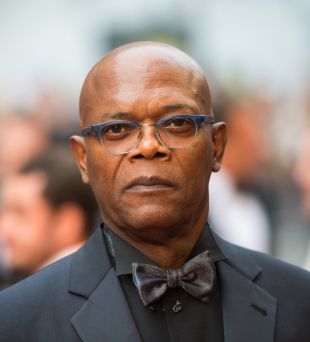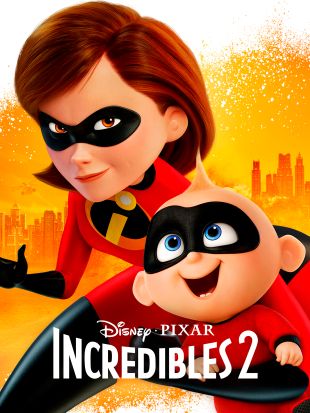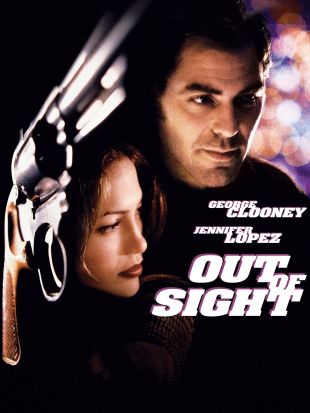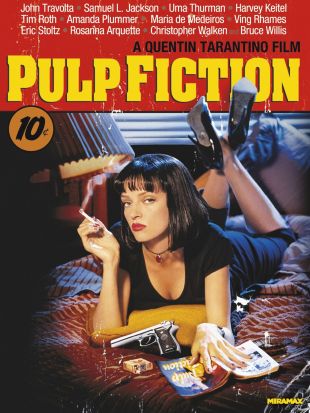After spending the 1980s playing a series of drug addict and character parts, Samuel L. Jackson emerged in the 1990s as one of the most prominent and well-respected actors in Hollywood. Work on a number of projects, both high-profile and low-key, has given Jackson ample opportunity to display an ability marked by both remarkable versatility and smooth intelligence.
Born December 21, 1948, in Washington, D.C., Jackson was raised by his mother and grandparents in Chattanooga, TN. He attended Atlanta's Morehouse College, where he was co-founder of Atlanta's black-oriented Just Us Theater (the name of the company was taken from a famous Richard Pryor routine). Jackson arrived in New York in 1977, beginning what was to be a prolific career in film, television, and on the stage. After a plethora of character roles of varying sizes, Jackson was discovered by the public in the role of the hero's tempestuous, drug-addict brother in 1991's Jungle Fever, directed by another Morehouse College alumnus, Spike Lee. Jungle Fever won Jackson a special acting prize at the Cannes Film Festival and thereafter his career soared. Confronted with sudden celebrity, Jackson stayed grounded by continuing to live in the Harlem brownstone where he'd resided since his stage days.
1994 was a particularly felicitous year for Jackson; while his appearances in Jurassic Park (1993) and Menace II Society (1993) were still being seen in second-run houses, he co-starred with John Travolta as a mercurial hit man in Quentin Tarantino's Pulp Fiction, a performance that earned him an Oscar nomination. His portrayal of an embittered father in the more low-key Fresh earned him additional acclaim. The following year, Jackson landed third billing in the big-budget Die Hard With a Vengeance and also starred in the adoption drama Losing Isaiah. His versatility was put on further display in 1996 with the release of five very different films: The Long Kiss Goodnight, a thriller in which he co-starred with Geena Davis as a private detective; an adaptation of John Grisham's A Time to Kill, which featured him as an enraged father driven to murder; Steve Buscemi's independent Trees Lounge; The Great White Hype, a boxing satire in which the actor played a flamboyant boxing promoter; and Hard Eight, the directorial debut of Paul Thomas Anderson.
After the relative quiet of 1997, which saw Jackson again collaborate with Tarantino in the critically acclaimed Jackie Brown and play a philandering father in the similarly acclaimed Eve's Bayou (which also marked his debut as a producer), the actor lent his talents to a string of big-budget affairs (an exception being the 1998 Canadian film The Red Violin). Aside from an unbilled cameo in Out of Sight (1998), Jackson was featured in leading roles in The Negotiator (1998), Sphere (1998), and Deep Blue Sea (1999). His prominence in these films added confirmation of his complete transition from secondary actor to leading man, something that was further cemented by a coveted role in what was perhaps the most anticipated film of the decade, Star Wars: Episode I - The Phantom Menace (1999), the first prequel to George Lucas' Star Wars trilogy. Jackson followed through on his leading man potential with a popular remake of Gordon Parks' seminal 1971 blaxploitation flick Shaft. Despite highly publicized squabbling between Jackson and director John Singleton, the film was a successful blend of homage, irony, and action; it became one of the rare character-driven hits in the special effects-laden summer of 2000.
From hard-case Shaft to fragile as glass, Jackson once again hoodwinked audiences by playing against his usual super-bad persona in director M. Night Shyamalan's eagerly anticipated follow-up to The Sixth Sense, Unbreakable (2000). In his role as Bruce Willis' brittle, frail antithesis, Jackson proved that though he can talk trash and break heads with the best of them, he's always compelling to watch no matter what the role may be. Next taking a rare lead as a formerly successful pianist turned schizophrenic on the trail of a killer in the little-seen The Caveman's Valentine, Jackson turned in yet another compelling and sympathetic performance. Following an instance of road rage opposite Ben Affleck in Changing Lanes (2002), Jackson stirred film geek controversy upon wielding a purple lightsaber in the eagerly anticipated Star Wars II: Attack of the Clones. Despite rumors that the color of the lightsaber may have had some sort of mythical undertone, Jackson laughingly assured fans that it was a simple matter of his suggesting to Lucas that a purple lightsaber would simply "look cool," though he was admittedly surprised to see that Lucas had obliged him Jackson eventually saw the final print. A few short months later filmgoers would find Jackson recruiting a muscle-bound Vin Diesel for a dangerous secret mission in the spy thriller XXX.
Jackson reprised his long-standing role as Mace Windu in the last segment of George Lucas's Star Wars franchise to be produced, Star Wars Episode III: Revenge of the Sith (2005). It (unsurprisingly) grossed almost four hundred million dollars, and became that rare box-office blockbuster to also score favorably (if not unanimously) with critics; no less than Roger Ebert proclaimed it "spectacular." Jackson co-headlined 2005's crime comedy The Man alongside Eugene Levy and 2006's Joe Roth mystery Freedomland with Julianne Moore and Edie Falco, but his most hotly-anticipated release at the time of this writing is August 2006's Snakes on a Plane, a by-the-throat thriller about an assassin who unleashes a crate full of vipers onto a aircraft full of innocent (and understandably terrified) civilians. Produced by New Line Cinema on a somewhat low budget, the film continues to draw widespread buzz that anticipates cult status. Black Snake Moan, directed by Craig Brewer (Hustle and Flow) dramatizes the relationship between a small-town girl (Christina Ricci) and a blues player (Jackson). The picture is slated for release in September 2006 with Jackson's Shaft collaborator, John Singleton, producing.
Jackson would spend the ensuing years appearing in a number of films, like Home of the Brave, Resurrecting the Champ, Lakeview Terrace, Django Unchained, and the Marvel superhero franchise films like Thor, Iron Man, and The Avengers, playing superhero wrangler Nick Fury.



